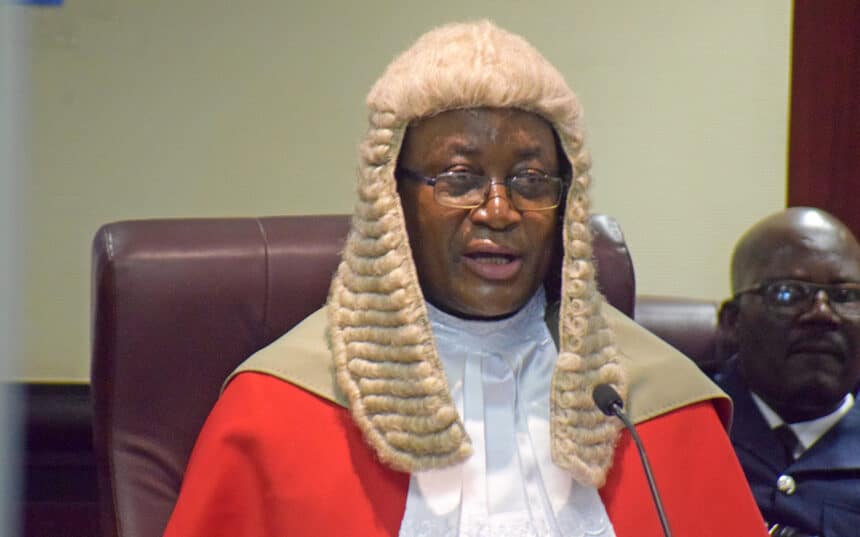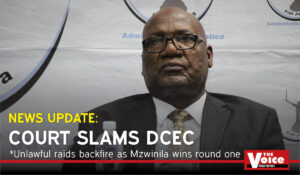Chief Justice Terrence Rannowane has lamented the sluggish pace at which money laundering cases are being prosecuted in the country describing them as stagnant.
When addressing participants at a two-day colloquium for officers of the Administration of Justice on Monday, the Chief Justice highlighted the findings of the 2017 Mutual Evaluation Report, which revealed that the courts have concluded a few cases of money laundering, with only four convictions.
“During the 2017 Report, Botswana had two convictions for money laundering and between 2019 and 2023, Botswana had two other convictions for money laundering,” he said.
However, Chief Justice Rannowane noted that there have been some improvements in removing profit from crime.
He noted that since 2017 to date, the courts have handled a total of 64 forfeiture cases from which they issued 61 restraining orders under the Proceeds and Instruments of Crime Act (PICA).
During the same period, five final confiscation orders restraining about P78, 265million and confiscating just over P6.4million.
He said that money laundering undermines the rule of law as it enables criminals to disguise the illicit origin of the proceeds of crime and enjoy such profits without being exposed to the criminal justice system.
“Furthermore, money laundering underpins and enables most forms of serious crimes such as corruption, illegal wildlife trade, drug trafficking, cybercrime, tax evasion, and obtaining by false pretenses among others. These offences are generally committed for the purpose of private gain and the proceeds are often laundered so that they can be enjoyed without fear of detection or confiscation,” he said.
The Chief Justice said that in the same vein, terrorism financing is the lifeline for terrorist organizations as they need money to sustain themselves and carry out attacks.
He said in some instances, the money comes from legitimate sources such as business profits, charitable donations or from illegal activities such as trafficking in weapons, drugs or people.
“Money laundering and terrorism financing thrives in exploiting different national laws and jurisdictional limits, making them attractive as transnational offences. Added to that, globalization, digitization and other advances in technology such as virtual assets present challenges in investigating and prosecuting money laundering and terrorism financing as the underlying criminal conduct may take place across national borders,” he said.
The colloquium aims to empower judicial officers, among them Judges and Magistrates, with knowledge on their role in anti-money laundering, counter terrorism financing, and counter proliferation financing value chain in line with the Financial Action Task Force (FATF) standards.














